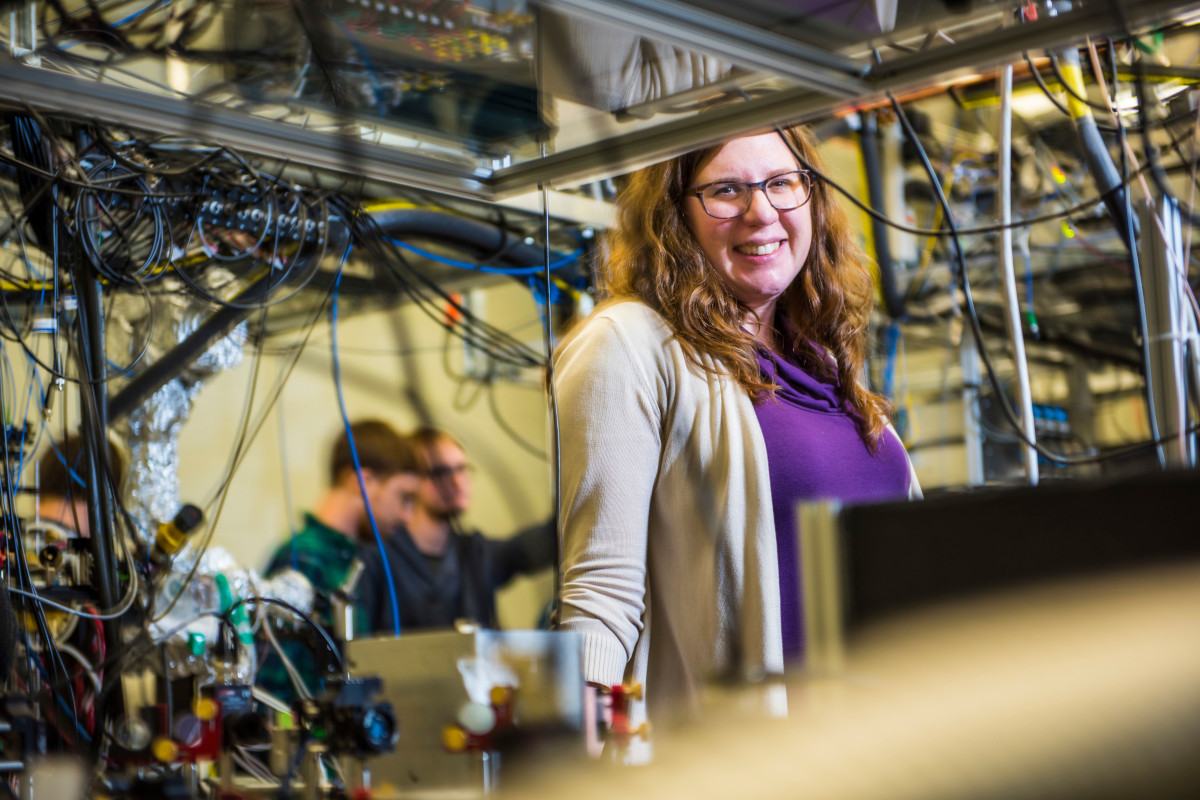
Lindsay LeBlanc, associate professor in the Faculty of Science, Canada Research Chair in Ultracold Gases for Quantum Simulation, and part of the leadership team of UAP-JEDI. Photo: John Ulan
A new group of faculty and students in the University of Alberta’s Department of Physics has taken up the mantle for championing diversity in physics.
The group called University of Alberta Physicists for Justice, Equity, Diversity, and Inclusivity, or UAP-JEDI for short, includes faculty member Lindsay LeBlanc as part of the leadership team.
“I am passionate about it because I think it's only just that we make our field, and indeed every field, welcoming to all who want to join it—regardless of their identity, welcoming to all who want to join it and to directly combat a history of discrimination and lack of representation of people from marginalized groups,” said LeBlanc, an associate professor in the Faculty of Science and Canada Research Chair in Ultracold Gases for Quantum Simulation.
UAP-JEDI is made up of a group of like-minded undergraduate and graduate students and faculty in the Department of Physics. This chapter is part of a network of more than 100 physics departments around the world, known asAmerican Physical Society's Inclusion, Diversity, and Equity Alliance (APS-IDEA). APS-IDEA comes together semi-annually for workshops as well as smaller, monthly group meetings. The goal is to build a community of practice and shared leadership where accountability and power are shared equally among students, staff, and faculty.
And as LeBlanc notes, it’s a powerful thing to feel connected.
“This group provides a place of community for equity-seeking people who might otherwise not feel like they have a place in physics. We often hear people say things like, ‘I thought I was the only one.’”
Beyond a sense of connection, UAP-JEDI is also about amplifying the voices of its community members and identifying things that need to change. “Together, we can make real and lasting changes that can change the culture of fields like physics—where outdated beliefs about the ways we do science are often at odds with an open, welcoming, and compassionate attitude towards the people learning, supporting, and practicing physics,” she said.
Changing landscape
When discussing equity, diversity, and inclusivity (EDI) in science, many tout the value that diverse perspectives can bring in terms of new knowledge and discovery through the contributions of people from marginalized groups. And while this may be true, it is of equal import to consider how inclusive practices benefit all scientists—new and old.
“Together, we can prevent the doubt and discouragement felt by students who are casually or unconsciously dismissed by teachers who assume—because of their identity—that they're not suited to science. I want these practises to make it safe for a curious grad student to be working in a lab free from sexual advances by their peers. I want researchers to have their papers and grants judged equitably and without bias. I want students with families to feel like they can both enjoy that part of their life and do science,” said LeBlanc.
“By recognizing and supporting more than one pathway to science, we open ourselves up to being challenged about our assumptions about the ways that things have to be done. I think it's good for the field to understand and grapple with the implicit assumptions we make about who and how we do science, and to explode these ideas—because they really aren't about the science at all.”
UAP-JEDI is in the early stages, and momentum is building—from weekly social interactions to monthly academic discussions to hosting speakers and a departmental climate survey. Interested in getting involved? Contact one of the UAP-JEDI team members or check out the group on social media or Slack.
You can learn more about equity, diversity, and inclusivity in the University of Alberta’s Faculty of Science on our website.